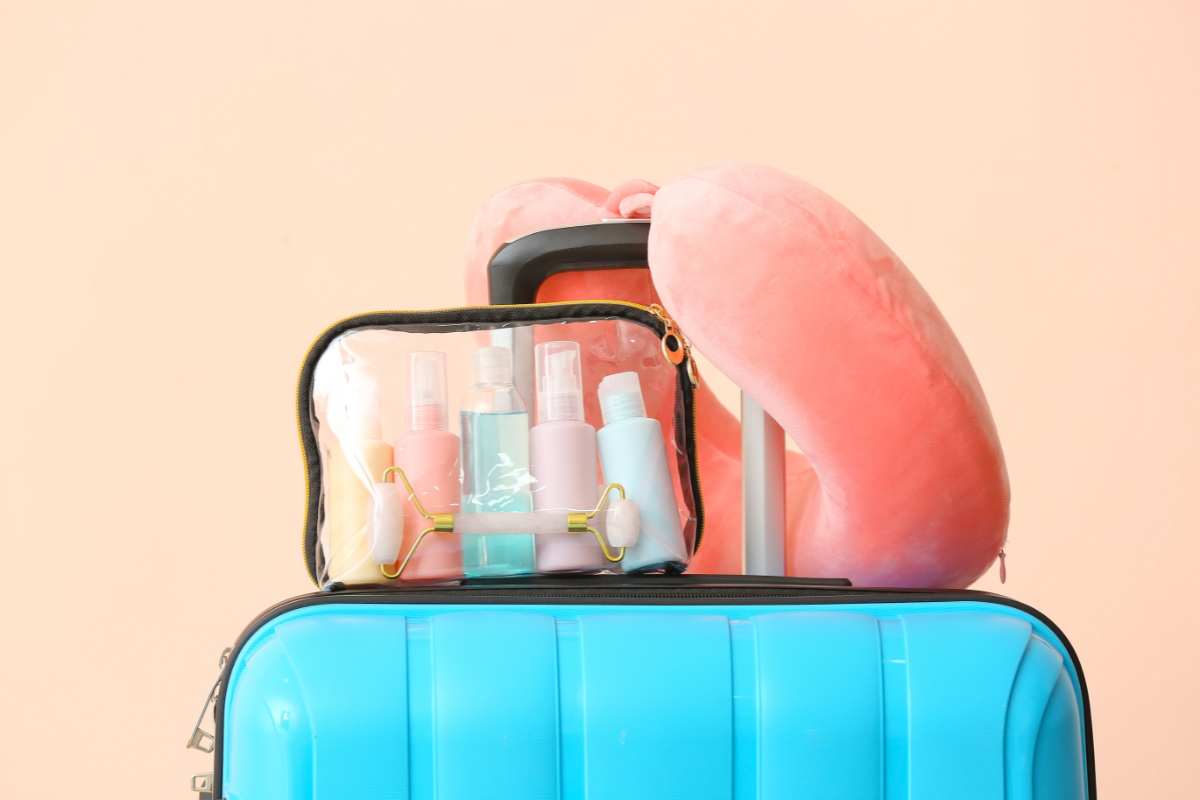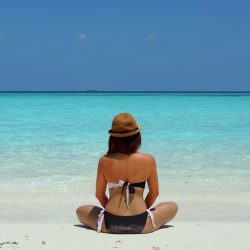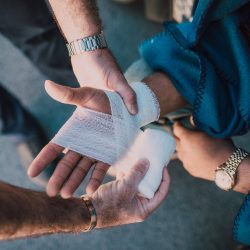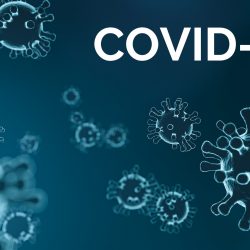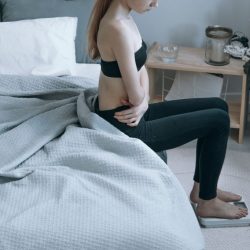When you think holidays we think escape, we think new adventures, we think looks… in short, we think well-being! But let’s face it, between choosing a destination, accommodation, activities, expenses… our sense of organisation is put to the test. Thinking about everything can become so stressful that we forget the most important things: health and safety !
To deal with the little mishaps that could spoil your trip, find out how to make a travel first-aid kit.
1. Putting together a first aid kit to suit your destination
Before drawing up the list of essentials to put in your first-aid kit, research the place where you’re going in advance. You can then use the information you gather to ask your doctor or pharmacist for advice. As they are familiar with your medical file, these health professionals are well placed to help you choose the most appropriate first-aid products and devices. Depending on your destination, certain products may also be required (mosquito repellents, water purifiers, etc.)
2. Think about your personal first-aid kit needs
Update your personal list, particularly your current treatments, especially if you suffer from chronic illnesses. Asthma, high blood pressure, allergies, diabetes, as well as contraception and sanitary protection. In some countries,access to healthcare can be difficult. So it’s a good idea to think ahead.
3. First aid kit for holidays: the basics
Your personalised checklist is now ready. However, to be a real ally in unexpected situations here are the basics to add:
Useful accessories :
Unbreakable thermometer, cotton wool, hand sanitiser, tweezers, scissors, torch, matches or lighter.
Headache care:
Headaches are a common occurrence when changing environments. To relieve this discomfort, solutions such as the Puressentiel headache roller are available. This natural treatment with 9 essential oils is as effective as it is practical, with its travel size ideal for a holiday kit.
A quick painkiller:
Nociceptol’s pain-relieving gel with essential oils is also an ally for treating minor accidents along the way. This thermal gel soothes muscular and/or post-traumatic pain. Bruises, strains, sprains… A gentle massage with this treatment quickly relieves painful areas.
An anti-spasmodic :
Stomach aches can be treated in different ways. Essential oil complexes like Comptoir Aroma Organic Roman Chamomile Essential Oil relieve and stimulate digestion. The chamomile it contains is a natural calming and sedative. This treatment is multi-use to naturally relieve us of many ailments.
An antiemetic:
To combat motion sickness, anti-nauseants are a must. Fortunately,Phytosun Aroms organic peppermint essential oil is renowned for its stomach-inducing properties. Nux vomica boiron granules are just as effective for digestive discomforts.
Treatment of wounds :
In the event of a cut, sting or wound, you will need an antiseptic, sterile compresses and plasters. It’s also advisable to bring an ointment or a gel for first-degree burns and dressings for any blisters.
Insect repellents:
Creams, lotions, sprays and mosquito repellent bracelets are all you need to avoid becoming a buffet for all kinds of diptera. That said, if you forget to apply your insect repellent before bedtime, a soothing anti-itch cream will relieve you of insect bites. You can use Puressentiel Anti Pique Soothing Bite Roller with 11 Essential Oils. Antiseptic and soothing, it is ideal for treating mosquito bites.
Sun protection :
A must-have in your summer holiday first-aid kit. Whether in cream, oil or spray form, sun protection is essential for a successful holiday. Sun protection and moisturising after-sun care to pamper your tanned skin!
Customised to suit individual needs
Tailoring the first-aid kit to individual needs is essential for effective management of health problems on holiday. This personalisation must take into account medical history and personal sensitivities.
- Managing digestive problems: If you are prone to digestive problems, we recommend using specific natural herbal teas. For example, peppermint is known for its soothing effects on the stomach and can reduce the symptoms of indigestion and irritable bowel syndrome. Ginger is effective against nausea and mild digestive problems, particularly when travelling. Fennel is also appreciated for its carminative properties, helping to reduce bloating and gas.
- Responding to allergies: If you have a history of allergies, it’s essential to incorporate appropriate natural remedies. For example, for skin allergies, calendula or aloe vera-based creams can relieve itching and redness.
- Preventing motion sickness: For those who suffer from motion sickness, natural remedies such as ginger lozenges or acupressure bracelets can help.
- Sleep and stress support: If stress or sleep problems are affecting you, consider including natural products such as chamomile tea, lemon balm or relaxing essential oils such as lavender.
Adding these targeted products will ensure that your first aid kit is not only complete, but also tailored to your personal needs, giving you peace of mind while you’re on the move.
Preparing a first aid kit for holidays: choosing the right container
As it contains your personal belongings and products that are sensitive to shocks, humidity and temperature variations, the perfect first-aid kit must be airtight and robust enough to preserve the quality of your first-aid products and equipment! One tip is to give preference to medicines in solid form (tablets, hard capsules, granules, etc.), which are less sensitive to moisture. For creams and sprays, opt for compact, space-saving formats. If necessary, you can even repackage them in “travel bottles” to save space. Finally, there’s nothing to stop you choosing a pre-filled travel first-aid kit and customising it by following steps one and two.

